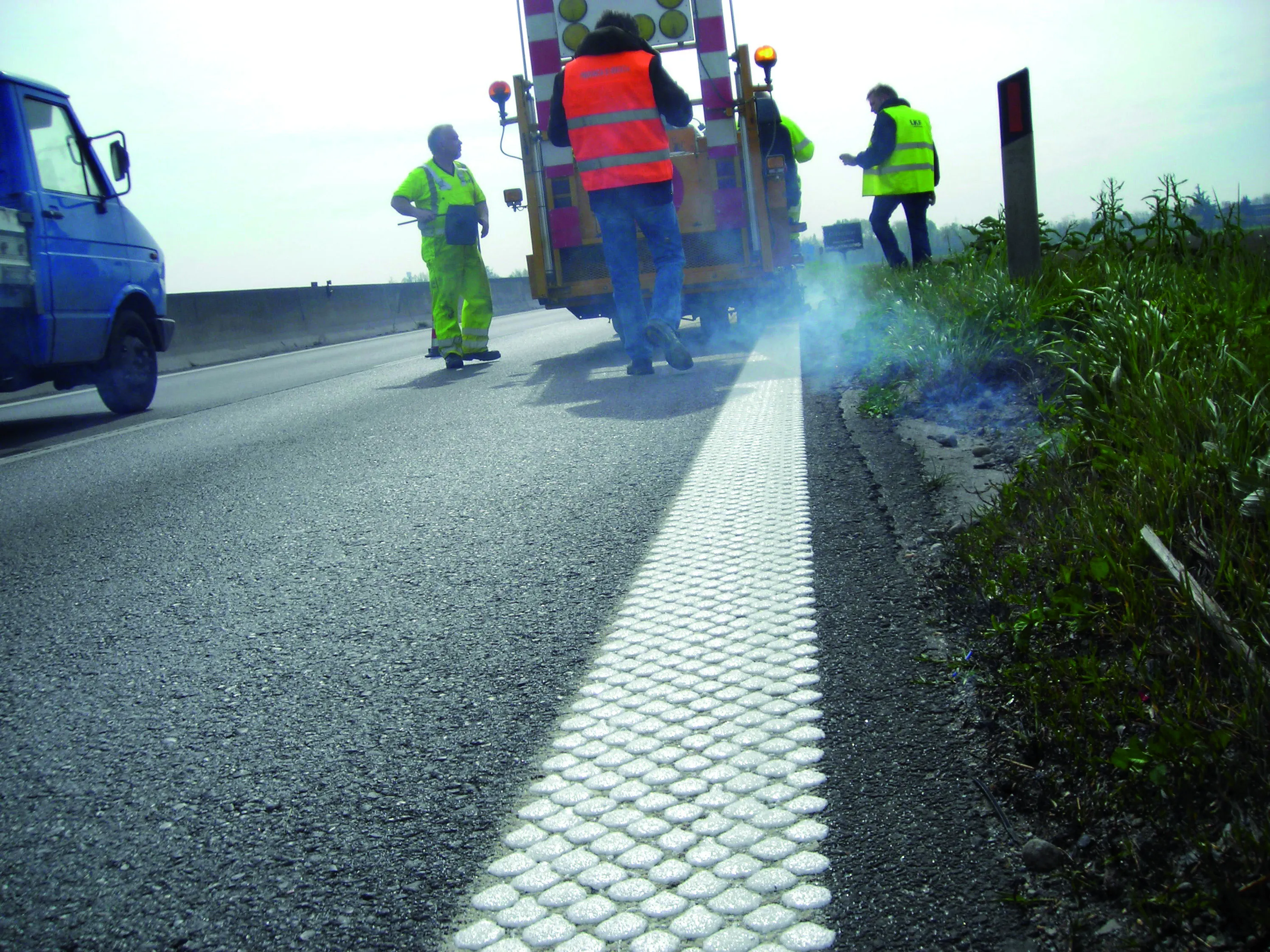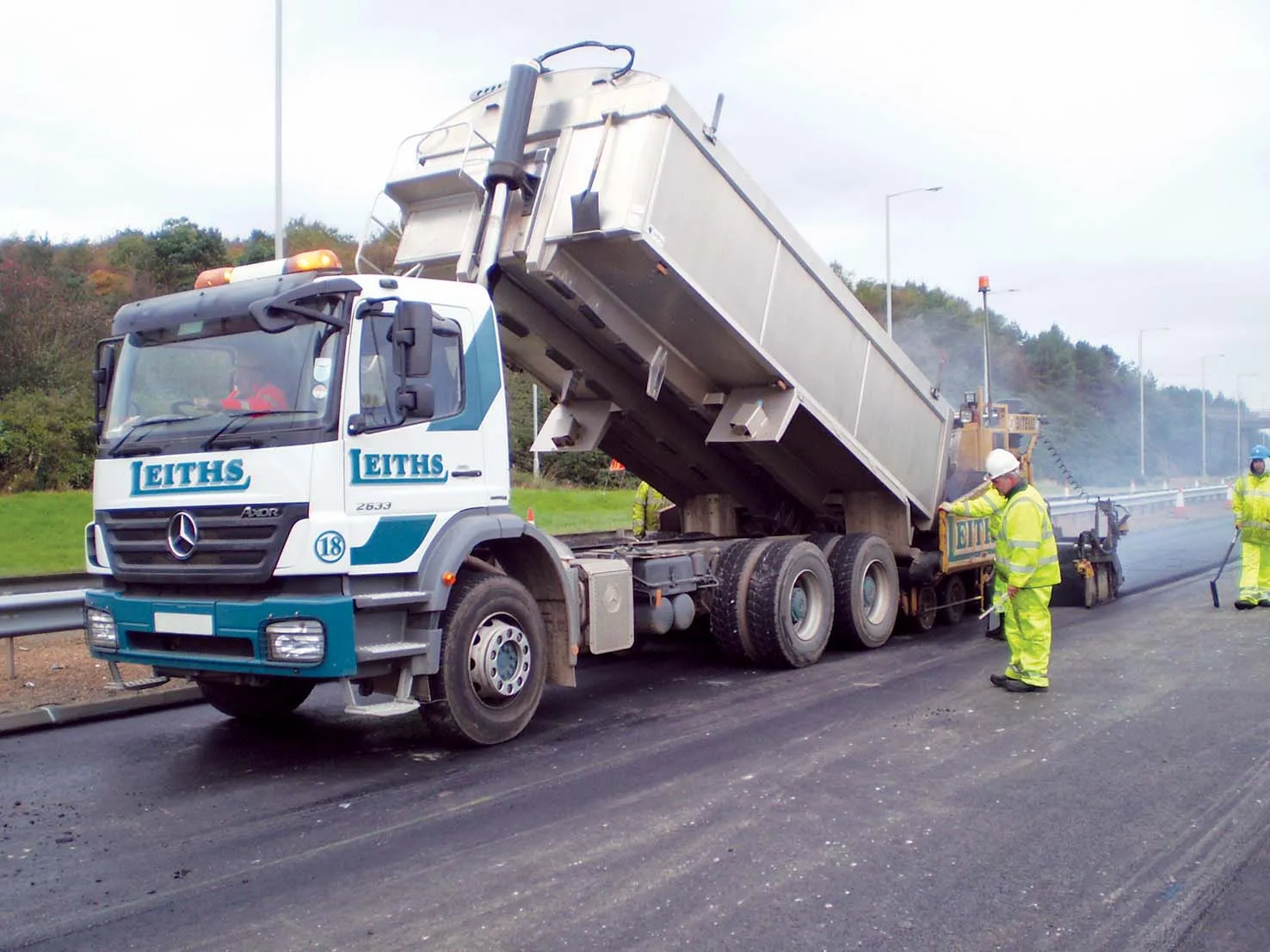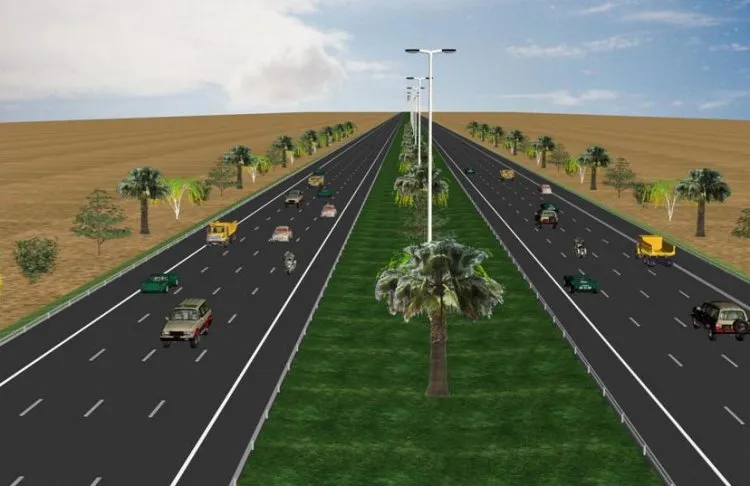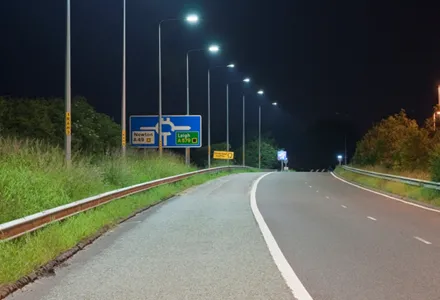Road markings, along with laying and testing equipment, are all essential to make sure drivers get clear instructions. Patrick Smith reports
Road markings are as important as signs, with longitudinal markings informing and warning road users of approaching situations that will require them to take some form of action.
March 16, 2012
Read time: 4 mins

Road markings, along with laying and testing equipment, are all essential to make sure drivers get clear instructions. Patrick Smith reports
Road markings are as important as signs, with longitudinal markings informing and warning road users of approaching situations that will require them to take some form of action.For example, solid lines often mean do not cross; lane lines can indicate turn right or left, and transverse lines also give instruction (stop or give way). As such, and worldwide, they are essential to ensure the safe and smooth flow of traffic, and are particularly important in the dark and when it is raining.
Markings are made from various materials including thermoplastic, paint, cold plastic, permanent and temporary tapes, and permanent and temporary preformed road markings, and either incorporate or have added special beads for retro-reflectivity.
For example, Ennis Paint Prismo has been offering its new Nighbright marking, which follows the success of its Colourbright accident reduction system, which also uses the company's Clusterbead technology, a patented process of fusing high index glass beads in a coloured binder system, which is highly visible to drivers at night because it reflects back coloured light from the white light of vehicle headlights.
Prismo Road Markings is claiming that trials of its Zebra Bright road marking system show major gains in retro-reflectivity. The system combines methyl methacrylate reactive paint (MMA) with embedded white Clusterbeads. The investigations used an LTL 2000 hand held retro-reflectometer (from
ViziSpot, the road marking system from Danish company
ViziSpot is a new type of structured thermoplastic road marking system that has been developed to produce a constantly 'broken' line, which has a rumble effect that can wake up sleepy drivers.
Highway beads producer
It offers glass beads for road markings that guide drivers during the night under wet and rainy conditions, including its high level of reflectivity ECHOSTAR wide granulometric repartition glass beads, which are available in different granulometries in order to meet requested performance levels and match with all kind of marking products.
ECHOSTAR glass beads are made from type A sodo-lime glass and respect the environment since they contain neither hazardous waste nor free silica: they also "have an excellent retroreflection potential" with the refraction index exceeding 1.54.
Among
Last year, the company said that with AgglothermTS, it had succeeded in designing a "completely new type of thermoplastic for structured road markings."
Thanks to new raw material components, all of them developed in SWARCO's Amstetten Competence Center for Glass Technology in Austria, this type of thermoplastic features "unprecedented properties" for use in a traffic related environment.
AgglothermTS with structures such as multi-dot are said to deliver excellent wet night reflectivity and durability.
Dau Long Road Mark Materials of Taiwan also produces road marking materials including thermoplastic raised-type road marking materials. These are sold worldwide and among sales are to the Philippines, China, India, Vietnam, Singapore, Malaysia, Sri Lanka and Tanzania.
May Tzeng of Dau Long said that the raised-type materials mean when wheels run over the raised blocks a sound is made, reminding the driver to take action after crossing lanes, while flat-type thermoplastic striping materials does not have this function. "Raised blocks will not fall off the stripe," she said.
Apart from producing thermoplastic road marking materials and building some machines, Dau Long also buys machines from other suppliers, although its glass beads are all bought from suppliers.









